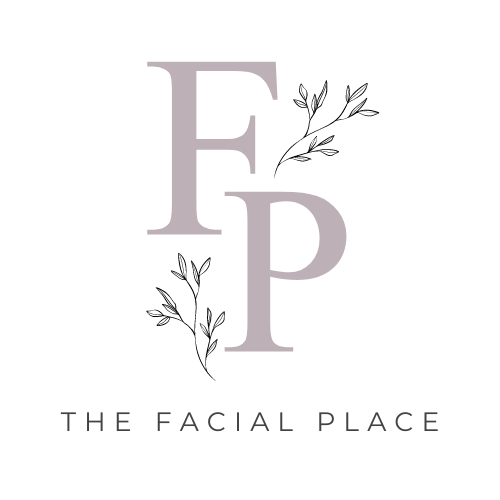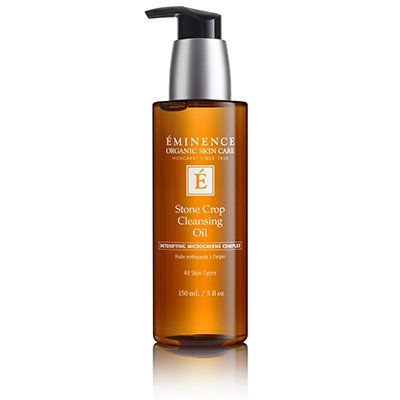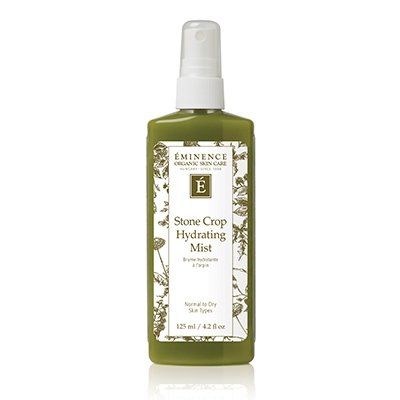WHY YOU SHOULDN'T SLEEP IN MAKE-UP
We've all done it!
One of the biggest beauty blunders is forgetting to remove your makeup before bed. Sleeping in cosmetics can cause countless problems including dullness, congestion and inflammation. That’s why it’s crucial to remove your makeup thoroughly before your head hits the pillow. We have all the tips you need to learn how to properly remove your makeup.
What Happens When Your Don't Remove Makeup?
Is it really so bad to sleep in your makeup? While one slip up won’t ruin your complexion, consistently skipping this skin care step can cause cumulative damage over time. Here’s a breakdown of what happens to your skin when you don’t give it a thorough cleanse before bed.
Free Radical Damage
During the day, your skin accumulates oxidative stress through contact with pollution, blue light and UV rays. These environmental stressors expose your skin to free radicals - highly unstable molecules that attack otherwise healthy cells, causing dullness, inflammation and premature aging. Silicone primers , foundations and powders may be key to your beauty routine, but these occlusive cosmetics can exacerbate free radical damage.
“Free radicals cling to makeup, causing a number of skin issues - including collagen breakdown.”
Makeup traps free radicals against your skin and, when left on, prevents it from repairing overnight. Eminence Organics Product Support Representative Alicia Hawthorne tells us: “Free radicals cling to makeup, causing a number of skin issues - including collagen breakdown.” When you sleep in your makeup, you deprive your skin of the opportunity to recover from the day’s oxidative stress. As a result, damage to structural proteins like collagen and elastin continues, and your skin takes on the visible signs of aging more quickly.
Dull Skin
There’s truth to the term “beauty sleep”: Your skin performs its most important regenerative functions overnight. While you sleep, growth hormone kicks into gear and stimulates skin cell renewal. This triggers the skin’s natural turnover process whereby dead and damaged skin cells are shed from the surface and replaced by new, healthy cells. Makeup interferes with this cycle by trapping dead skin and preventing it from sloughing away.
We naturally shed close to 50 million skin cells a day. When skin cell turnover is interrupted, dead cells aren’t efficiently removed and accumulate on the skin’s surface. This contributes to a dull, dry and lackluster complexion. Dendy Engelman, MD tells SELF : “When we’re not exfoliating or removing those top surface cells as quickly, the light doesn’t reflect off the skin as nicely as it does when it’s very clean and properly exfoliated. Even if your skin doesn’t break out, it is going to look older, rougher and less radiant.”
Clogged Pores & Breakouts
The fact that comedogenic products lead to breakouts is a no-brainer - and the potential for acne is amplified when these types of cosmetics are left on overnight. Acne occurs when oil, debris and bacteria combine, causing infection and inflammation. Wearing makeup to bed traps these impurities under the skin, increasing the risk of a breakout.
Acne cosmetica is caused by pore-clogging makeup and displays as tiny bumps and whiteheads on the cheeks, chin and forehead.In fact, there’s a type of acne that is caused specifically by makeup. Acne cosmetica is caused by pore-clogging makeup and displays as tiny bumps and whiteheads on the cheeks, chin and forehead. If you’re going to sleep with a full face of makeup on, you’re not only preventing these breakouts from clearing but also contributing to their emergence in the first place.
Irritation & Inflammation
Makeup’s occlusive effect also contributes to skin irritation and inflammation. Heavy cosmetics form a barrier overtop of the skin that locks in environmental irritants such as chemical agents, allergens and pollution. Cosmetics themselves often include synthetic ingredients and fragrances that are irritating to the skin - especially when left on for a prolonged time. When these irritants are left to fester, they can cause an inflammatory response.
Inflammation is the skin’s first line of defense against external stress. When faced with harmful stimuli, the skin issues an immune response that rushes blood to the area. While this is meant to speed up healing, it also results in uncomfortable symptoms such as heat, swelling and redness. For some skin types, this can be temporary but for others - especially sensitive - it can cause ongoing discomfort in the form of blotchy, itchy and dry skin.
How to Remove Your Makeup
You have a handle on the importance of removing your makeup before bed, but how do you do it properly? If you’ve ever detected a trace of mascara smeared under your eye or a smudge of foundation on your pillowcase - even after you’ve washed your face - you’re probably not making the most of your cleansing routine. Follow these tips to ensure you clear every last bit of makeup from your complexion.
Avoid Cleansing Wipes
First, skip the cleansing wipes. While they may be convenient, most makeup wipes won’t fully remove your makeup. As James C. Marotta, MD tells Good Housekeeping , “Very few makeup wipes contain ingredients that can actually break down all of your face oils, makeup and gunk on your skin, so you’re really just rubbing bacteria, irritants and makeup wipe residue around your skin.” Plus, many cleansing wipes contain chemical ingredients and preservatives that can irritate the skin and cause dryness.
These are the steps to perform a double cleanse:
Break down makeup with a cleansing oil or balm: The oil in the cleanser will solubilize oil-based products like foundation and mascara so they lift easily from your skin’s surface. Warm a small bit of cleansing oil or balm in your hand. Then, use your fingers to swipe it across your eyelids and lips and use circular motions to lightly massage it over your face. Rinse clean with lukewarm water.
Remove impurities with a second cleanser: Now that you’ve loosened and lifted your makeup, you need to sweep away stubborn dirt, grime and bacteria that are left on the skin. Simply apply your favorite cleanser to wash your skin more deeply and target specific skin concerns such as acne or aging. With this two-step process, you clear both types of impurities that can clog pores, dull your skin and contribute to premature aging.
What To Do After You've Removed Your Makeup
Makeup removal gives your skin a clean slate - but it needs to be followed with proper care to maintain your skin’s health and resilience. After cleansing, continue your skin care routine
with these essential steps:
- Apply a toner or facial mist to hydrate your skin and prep it for the skin care products that follow.
- Use a serum, oil or concentrate to target specific skin concerns and conditions.
- Moisturize to lock in hydration and protect your skin’s lipid barrier.
- Tap on an eye cream for a bright and smooth eye area.
- Apply SPF to protect your skin from the drying and aging effects of UV rays.
Spa, Makeup, Facial, Pickering, Whitby, Ajax, Toronto, Toner, Clean, Acne, eye cream, cleanse, routine, sleep, stressfree













